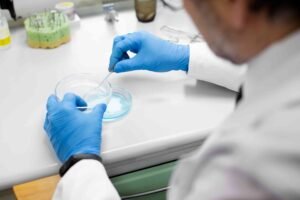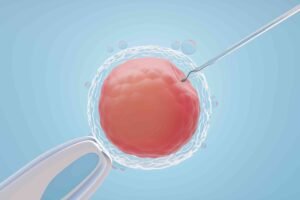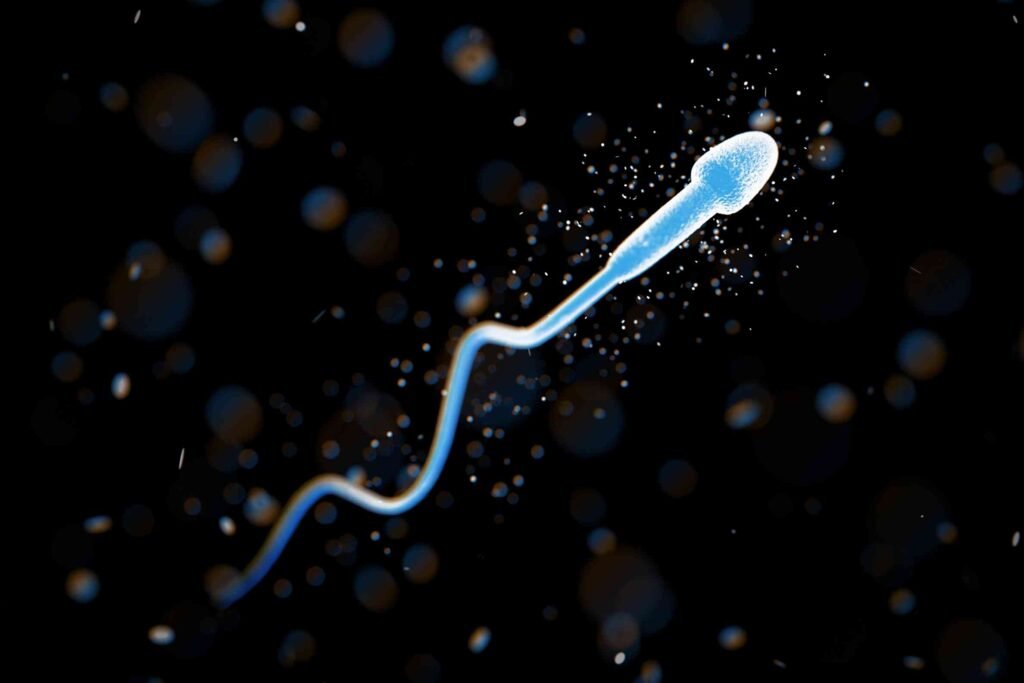Sperm DNA Fragmentation: What It Is and Why It Matters
Fertility is one of those subjects that no one really talks about until it becomes a challenge. If you and your partner have been trying to conceive without success, you’re probably knee-deep in tests, acronyms, and doctor visits. Among all the jargon, one term you might come across—and should pay attention to—is sperm DNA fragmentation.
This term might sound technical or overwhelming, but understanding what it is and how it affects male fertility could be the key to unlocking answers in your fertility journey. Let’s break it down together in simple terms and get to the heart of why sperm DNA fragmentation actually matters.
Understanding Sperm DNA Fragmentation
We often think of sperm in terms of quantity and motility—how many there are and how well they swim. But there’s another layer to sperm health that isn’t visible under a microscope: the integrity of the genetic material inside the sperm, known as DNA.
Sperm DNA fragmentation refers to the presence of breaks or irregularities in the DNA strands within the sperm cell. Think of it like a scratch on a music CD—it might still play, but it won’t sound right. Similarly, sperm with fragmented DNA might still fertilize an egg, but the outcome could be less than ideal.

Why Does Sperm DNA Fragmentation Matter?
You might be wondering: If my sperm count and motility are good, do I really need to worry about DNA fragmentation?
The answer is: yes, absolutely.
Sperm DNA carries the genetic blueprint that’s passed onto your future child. If that blueprint is damaged or incomplete, it can lead to:
- Difficulty achieving pregnancy (even with assisted reproductive techniques like IUI or IVF)
- Increased risk of miscarriage
- Poor embryo quality
- Developmental problems down the line (though this is still an area of ongoing research)
In other words, sperm DNA fragmentation adds an important piece to the fertility puzzle that conventional semen analysis often misses.
What Causes Sperm DNA Fragmentation?
DNA damage in sperm isn’t something that just happens randomly. Several lifestyle, environmental, and biological factors can contribute to it. Here are some of the more common culprits:
1. Oxidative Stress
This is one of the main causes. Oxidative stress happens when there’s an imbalance between free radicals (unstable molecules) and antioxidants in your body. When free radicals run rampant, they can attack DNA in sperm cells, leading to fragmentation.
2. Age
Yes, male biological clocks matter too. As men age, sperm DNA fragmentation tends to increase, even if semen volume and motility appear normal.
3. Lifestyle Choices
Smoking, excessive alcohol, recreational drugs, obesity, and poor diet can all significantly raise DNA damage in sperm. Even something as seemingly innocent as frequent hot tub use can impact sperm quality.

4. Environmental Toxins
Pesticides, heavy metals, radiation, and industrial chemicals can damage sperm DNA. If you work in a high-risk environment or live in an area with heavy pollution, your exposure could be higher than average.
5. Infections and Inflammation
Chronic infections in the reproductive tract can produce high levels of reactive oxygen species, which in turn can lead to fragmentation.
6. Varicocele
This is a condition where veins inside the scrotum become enlarged, leading to increased heat and oxidative stress. It’s a common yet often overlooked contributor to sperm DNA fragmentation.
How Is Sperm DNA Fragmentation Measured?
Unlike standard semen analysis, which looks at concentration, motility, and morphology, fragmentation requires specialized testing. Some of the most commonly used tests include:
- SCSA (Sperm Chromatin Structure Assay): Measures how susceptible sperm DNA is to damage under acid exposure.
- TUNEL Assay: Detects actual breaks in DNA strands using fluorescent markers.
- Comet Assay: Visualizes DNA breaks under a microscope, showing a comet-shaped tail in fragmented DNA.
- SCD (Sperm Chromatin Dispersion): Also known as the Halo test, this one looks at the dispersion of DNA loops when the sperm is treated.

Each test has its pros and cons, but they all aim to measure the percentage of sperm with fragmented DNA. A high fragmentation index usually means trouble with conception or higher miscarriage risks.
What’s Considered a “High” Level of Fragmentation?
This depends on the test used, but generally:
- Less than 15%: Low DNA fragmentation (good fertility potential)
- 15–25%: Moderate (may affect fertility in some cases)
- Over 25%: High (likely to impact natural conception and ART success)
Even with high fragmentation, pregnancy isn’t impossible—but it might require targeted interventions.
What Can You Do If You Have High Sperm DNA Fragmentation?
Here’s the good news: many causes of sperm DNA damage are reversible or manageable. Below are steps you can take to reduce fragmentation and improve your fertility outlook.
1. Lifestyle Overhaul
Cut out smoking, limit alcohol, ditch recreational drugs, and aim for a healthy weight. Eat a balanced diet rich in antioxidants (like berries, leafy greens, and nuts).
2. Antioxidant Supplements
Supplements like Vitamin C, Vitamin E, Coenzyme Q10, L-carnitine, zinc, and selenium can help reduce oxidative stress. However, speak to your doctor before starting any supplement regimen.

3. Stress Management
Chronic stress can mess with hormone levels and cause inflammation, indirectly harming sperm DNA. Practices like yoga, meditation, or even regular walks can do wonders.
4. Treat Underlying Medical Conditions
If you have varicocele, an infection, or hormonal imbalances, addressing them can significantly improve your sperm health.
5. Timed Intercourse
Believe it or not, abstaining too long or too little can affect DNA integrity. A sweet spot is ejaculating every 2–3 days to keep sperm “fresh.”
6. Advanced Fertility Techniques
If natural conception isn’t working, your fertility specialist might suggest:
- ICSI (Intracytoplasmic Sperm Injection): Injecting a single sperm into the egg, often used in cases of high DNA fragmentation.
- PICSI or IMSI: Techniques that select the best quality sperm for ICSI.
- Testicular Sperm Extraction (TESE): In some cases, sperm retrieved directly from the testicles have lower fragmentation levels than ejaculated sperm.
Sperm DNA Fragmentation and IVF: What You Should Know
If you’re already on the path of assisted reproduction, knowing your fragmentation level is still crucial. Studies show that high fragmentation can reduce success rates of IVF and increase miscarriage risk even when embryos appear healthy.
Some clinics now routinely offer DNA fragmentation testing as part of their fertility workup—especially for couples who’ve experienced unexplained infertility or recurrent pregnancy loss.
Knowing this number can help your doctor tailor your treatment plan, whether that means tweaking stimulation protocols, using ICSI, or incorporating antioxidant therapy beforehand.

The Emotional Side of Male Factor Fertility
Let’s take a moment to acknowledge something that often gets swept under the rug: how deeply emotional all of this can be.
Men are often sidelined in fertility conversations, but male factor infertility (which includes issues like sperm DNA fragmentation) plays a role in nearly half of all infertility cases.
If you’re struggling, it’s okay to feel frustrated, confused, or even ashamed. But remember—none of this is your fault. The good news is that in many cases, it’s not a permanent sentence. With the right information and guidance, there are real, tangible ways to improve sperm DNA quality and boost your chances of becoming a parent.
When to Ask for a Sperm DNA Fragmentation Test
If any of the following apply to you, it might be time to bring up fragmentation testing with your doctor:
- You’ve had multiple failed IUI or IVF cycles
- Your partner has experienced recurrent miscarriages
- You’ve been trying to conceive for over a year without success
- Your lifestyle or job involves exposure to toxins, heat, or stress
- You’ve had past infections or a diagnosis like varicocele
It’s a simple test, usually performed at a specialized lab, and could provide insights that a regular semen analysis cannot.

Final Thoughts:
While it may not be the first test you hear about on your fertility journey, sperm DNA fragmentation testing is becoming increasingly important in understanding the bigger picture. Think of it as a missing puzzle piece that could explain unexplained infertility or treatment failures.
And even if the test reveals a high level of DNA fragmentation, it’s not the end of the road. Many men have improved their scores dramatically with lifestyle changes, supplements, and medical interventions. Armed with the right knowledge, you’re in a much better position to make informed choices for your family’s future.
So if you’re stuck in fertility limbo, and no one’s mentioned this test to you yet—bring it up. It might just be the game-changer you’ve been waiting for.


